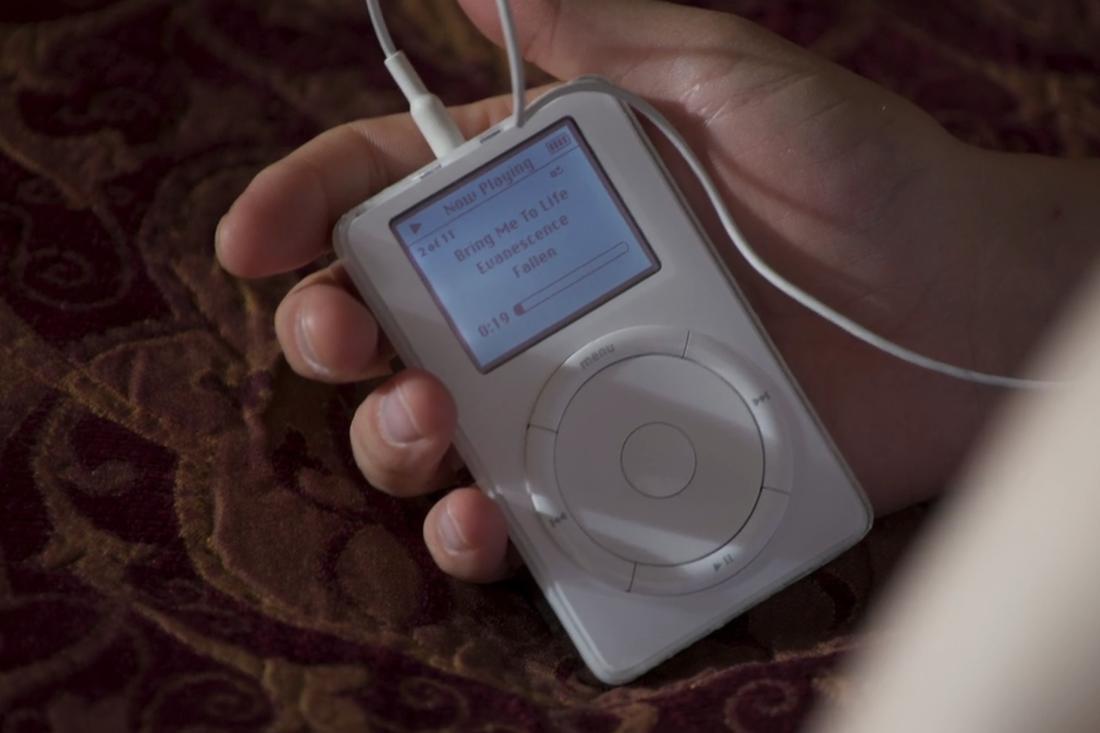
In the third episode of Season 2 of “The Rehearsal,” titled “Pilot’s Code,” Nathan Fielder endeavors to enhance pilot-to-pilot communication by delving into his most elaborate simulation yet. To grasp the mentality of a receptive pilot, he explores the well-known tale of Captain Chesley “Sully” Sullenberger, who miraculously landed a passenger plane on the Hudson River in 2009 after a bird strike disabled an engine. Fielder is intrigued by a specific moment and a gap: In the cockpit voice recording of Sully’s legendary flight, there is a significant 23-second pause as he manages the descent, followed by him requesting suggestions from his co-pilot. The question at hand is what transpired during that period, and what qualities made Sullenberger the type of captain who would seek feedback from his first officer?
To find answers to these questions, Fielder delves into Sullenberger’s memoir titled “Highest Duty.” He then immerses himself in a series of simulations, using the captain’s life experiences as a basis to gain a deeper understanding of him. This process takes us back to his infancy, resulting in an unforgettable scene where Fielder is seen dressed in diapers and acting like a baby, even being ‘fed’ by a giant puppet representing Sullenberger’s mother.
The memoir takes Fielder to a possible disclosure. He observes that from 2002 onwards, after his father’s demise, Sullenberger often refers to popular music more frequently. Fielder hypothesizes that the captain’s acquisition of an iPod and development of musical preferences might have made him more in tune with his emotions. Particularly striking is the rock band Evanescence, which is mentioned in “Highest Duty” more than any other musical act. Interestingly, this detail was not incorporated into Clint Eastwood’s 2016 biopic, “Sully,” starring Tom Hanks. Remarkably, this preference for Evanescence, an unlikely choice for a no-nonsense older pilot from Texas, also supports an unexpectedly credible theory that explains the 23 seconds of silence in the air: The chorus to their early-aughts hit, “Bring Me to Life,” lasts exactly 23 seconds. Fielder’s investigation culminates with Sully putting on headphones, closing his eyes, and listening to the chorus as the simulator replicating the river landing situation. This scene encapsulates a classic “Rehearsal” moment: absurd, comical, but given the context of all that has preceded it, transcendent.
Amy Lee, lead singer of Evanescence, expresses her puzzlement about a particular sequence, saying, “I’m at a loss for words to describe it.” She continues, “It’s mind-blowing, absolutely stunningly beautiful.” From her home in Nashville, she talks about the episode, the aviation community’s deep appreciation for the band, and if she would participate in one of these rehearsals.
Did you watch the episode?
I sure did.
What thoughts are swirling around in your mind?
Let me tell you, it’s going to take a while to fully express my thoughts on this. The show is simply outstanding! I began watching it during season two due to our current situation, and now I can’t get enough of it. In fact, I’ve gone back and started from the very first season. It’s incredibly thought-provoking, and its unique format sets it apart from any other show I’ve ever seen, even considering the intriguing subject matter. It’s hard to put into words just how captivating it is. When they approached us about licensing a song, I admit, I had a tough time grasping the concept.
How did HBO present The Rehearsal to you? Well, they described it as a ‘meta-docu-comedy’, which got me intrigued. In its second season, the series delves into the life of Sully Sullenberger, the pilot from the Miracle on the Hudson incident, based on his memoir ‘Highest Duty’. Interestingly, the creative team plans to use the song ‘Bring Me to Life’ in recreations of the events leading up to the fateful flight in episode 203. The song will play as Sully listens to it on his iPod in his hotel room and then continues as he jogs down a path. I assumed that an actor would be running, but it turns out it’s Nathan. After an interruption, Sully is shown listening to the song again on his iPod.
And that was an easy yes for you?Literally, my response was, “Sounds really weird and fun. Thanks!”
How did you feel about the song’s placement on the show? For me, this season has been fantastic and engaging. However, I must admit that the episode with our song stood out as particularly awkward in comparison to the rest of the episodes I’ve watched so far. That said, the segment featuring our song was incredibly moving and difficult to describe using just one word.
But on a larger scale, I wonder how we can take the show to new heights. What adjustments or improvements could be made for pilots? Communication is crucial in this regard. It’s essential to create an environment where vulnerabilities are accepted and encouraged. After all, if these sensitive jobs were handled by robots instead of humans, they would lack the nuance that only a human touch can provide. So let’s embrace the humanity of our characters and stories for a more authentic viewing experience.
It’s amazing how a song can serve as a safe space for expressing vulnerability when you feel like you shouldn’t, and that resonates with me. This show made me delve deep into my thoughts, taking me back to the early stages of my career, particularly while composing and recording that song. The feelings intensified after the song became successful and I was thrust into the limelight for the first time. I felt the need to portray strength over vulnerability because I was a woman, but also because I was young and had to fight for everything creatively to prove myself. It’s fascinating how this song in the show mirrors its real-life impact, providing an outlet for people worldwide to break down when they needed to. Frankly, it’s mind-blowing and incredibly beautiful.

Is it plausible to you that Fielder’s theory aligns with Sully’s 23 seconds of silence on the black-box recording? While it’s an intriguing idea, we may never truly know due to Fielder’s perspective on what pilots must endure in their careers as expressed in his book. So, while it might be plausible, and I find it profoundly fascinating, even if it was simply a personal belief of Sully’s.
That day is also etched in my memory. We were residents of New York City at the time, and we experienced an extraordinary occasion. Later on, I recall learning about the publication of his book, where he acknowledged our music as well.
Have you read it?I didn’t. I feel like I might now.
I’m guessing you’ve never had a chance to meet or speak with him, then?No, no.
If asked what I would say to him, here’s what I might tell him: “Well, I’m not sure… Perhaps ‘Thank you,’ or something like, ‘It’s alright to have feelings — but I believe you’ve already learned that.’ At this stage, though, it seems he doesn’t require my help.
It also sparked a different thought in me. It struck me that the aviation industry seems to have a particular fondness for us, from flight crew to airport staff. I can’t quite put my finger on why, but perhaps it’s because we’re an international band, and people who travel extensively may be more likely to hear our music. However, as I watched this, I couldn’t help but wonder if there’s a deeper connection – maybe it’s about finding a sense of security or a place where they can let their guard down and express vulnerability. Interestingly, we also have many fans among police officers, firefighters, and military personnel, which makes me think that these individuals, who often need to project strength, are not any less human than the rest of us. If our music has provided a comforting outlet for them, it’s incredibly rewarding for me to know that.
Have you encountered a tale so unusual regarding the significance of “Bring Me to Life” to someone else? In our experience, this licensing situation is absolutely unprecedented in terms of the song’s relevance. It’s quite intriguing because it seems to revolve around the very tune itself.
Had you come across Nathan Fielder’s work prior to “The Rehearsal”? Or perhaps you’re familiar with him from shows like “Nathan for You” or “The Curse”? To be honest, I wasn’t aware of his work before this, but now that I’ve seen it, I can’t help but feel he’s a true creative genius.
The production titled “The Rehearsal” is incredibly unusual and intellectually stimulating. I find myself laughing hysterically at scenes that aren’t necessarily funny, yet I’m left in a state of disbelief. For instance, in the first episode of the inaugural season, when he discusses with a man inside his house, then reaches a point where he says, “This moment where I’m sitting here talking to you, I’ve actually constructed an entire set of this moment and rehearsed it,” and subsequently reveals the set which mirrors the man’s house and depicts the same conversation, almost verbatim. It leaves me utterly amazed, thinking “What on earth is this?” I’m deeply captivated by it. I feel an urge to climb up to the rooftops and proclaim for everyone to watch it, but I sense a need to issue some serious warnings. Oh my, like the puppet breast-feeding milk scene? I was literally on the edge of my seat covering my eyes.
In essence, The Rehearsal seems to explore the idea of confronting anxiety through practice or rehearsal. Anxiety often stems from uncertainty about what lies ahead and a fear of potential outcomes. If we could rehearse these anticipated events that cause us apprehension, much like we prepare for a stage performance, it would alleviate our fears and make us feel more ready for the actual event. However, I’m not entirely sure.
From my perspective, the direction this season’s storyline with pilots appears to be more than just entertainment; it seems as though he’s actively seeking to address an issue. The focus on crashes, communication, and the intricate social structure of that aviation community is captivating because we, as outsiders, are largely unaware of these aspects. It’s intriguing to observe this apparent gap being highlighted. It appears that Fielder’s intention could prove beneficial for others.
In a high-stress scenario, Erykah Badu’s music provides comfort and reassurance, much like having a supportive sister, doula, or mother by my side. I often turn to her mixtapes when I need a sense of calm and guidance.
Read More
- Who Is Harley Wallace? The Heartbreaking Truth Behind Bring Her Back’s Dedication
- Basketball Zero Boombox & Music ID Codes – Roblox
- 50 Ankle Break & Score Sound ID Codes for Basketball Zero
- TikToker goes viral with world’s “most expensive” 24k gold Labubu
- Revisiting Peter Jackson’s Epic Monster Masterpiece: King Kong’s Lasting Impact on Cinema
- 100 Most-Watched TV Series of 2024-25 Across Streaming, Broadcast and Cable: ‘Squid Game’ Leads This Season’s Rankers
- How to watch the South Park Donald Trump PSA free online
- League of Legends MSI 2025: Full schedule, qualified teams & more
- KFC launches “Kentucky Fried Comeback” with free chicken and new menu item
- 50 Goal Sound ID Codes for Blue Lock Rivals
2025-05-05 23:54